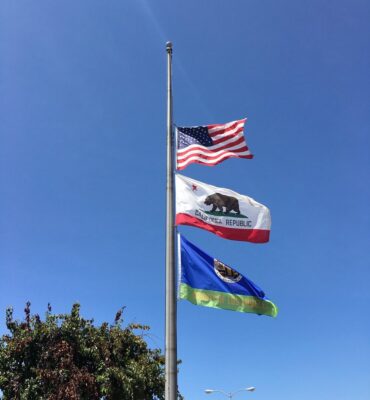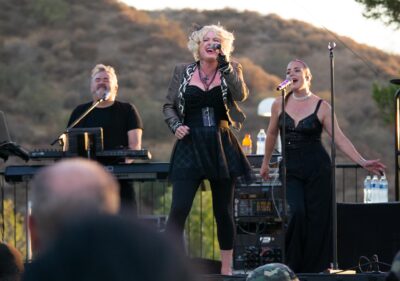Happy Post-Father’s Day.
One thing’s true: we all have fathers — good, bad, absent, or trying their best. We didn’t get to pick ours. Didn’t get to choose when or where we were born, or what kind of man brought us here. One day, we just showed up. That was their doing.
It’s miraculous and random all at once. One galactic spin, and there you were — born to a man you didn’t choose, in a place you never planned.
I hope you got a good one.
They say all men are created equal. Nonsense. Some are born into love. Some into silence. Some into lives of high education and comfort. Some into war zones, poverty, or pain. Some are raised by men who had no idea how to love, because they never saw it themselves.
A father gives what he can. Or what he knows. Or what he has left. Some of us grew up with men who were already broken when we arrived.
My dad, my family? Complicated.
I grew up in a broken family. My father had once been full of potential. Intelligent, charming, capable, handsome. But he carried a genetic time bomb: Machado-Joseph Disease — a degenerative genetic condition that slowly paralyzed him while his mind stayed perfectly clear. Like Lou Gehrig’s, only worse.
Symptoms came in his late thirties — numbness, then stumbling, then collapse. Eventually, he couldn’t walk, talk, or move. But he could think. He could suffer. He was trapped in a dead body with a working brain — for 20 years.
When I last saw him, he was laid flat in a urine-scented convalescent home — just another body among the rows of other forgotten bodies. His arms flailed uncontrollably. He couldn’t speak, and his eyes welled with frustration. Once, a nurse turned off his catheter. He went three days without urinating — and couldn’t tell anyone.
That’s a real kind of hell on Earth.
He and my mom had married in New York. After three kids, and a drinking accident, they followed the Dodgers to L.A. and settled in the San Fernando Valley. I was born soon after. The drinking worsened. Between the booze and the disease, it was hard to tell if he was drunk or just failing.
I saw him passed out on the floor too often. I saw him hit my mom. He tried to work — car sales, then Goodwill. But the arc of his life was already broken by the time I showed up.
His own father died in the 1918 Spanish Flu, while dad was still in the womb. He grew up poor and fatherless in Brooklyn; never met a father of his own. He came of age in the Depression, served in World War II. He wanted Harvard. Instead, he got war, struggle and disease.
Eventually, mom kicked him out. I was 10. We became the only divorced family I knew. My mom had to get a license, a job, and raise four kids.
Dad moved a few miles away. At 12, I delivered him groceries on my bike. Every Thanksgiving, every Christmas, he begged us to bring him home. Mom never reopened that door he’d slammed shut.
He lived — and declined — alone.
And yet … I remember him saving me from the bottom of a pool. I remember him showing up for parent-teacher nights. I remember when I was shot in the arm with a real arrow — and dad stormed down the block and scared the hell out of that kid’s father. Dad had his moments.
But he’d also been cruel. Drank too much. Hit my mom. Passed out cold on the floor. Emotional abuse. My oldest sister pulled out her own hair from the trauma. Bald spots. Shame. She never forgave him. I was younger, maybe more shielded.
His military service helped support us once he became fully disabled. Somehow, he’d bought the house my mom lived in until she died. The disease that killed Dad also took my second sister — but skipped me. That hell ends with me.
He was a mixed bag, my dad. But he was still my dad.
When I last saw him — broken, forgotten, fading in a convalescent home that smelled of ammonia and grief — I felt almost no connection. He was an obligation. A stranger with my face.
Now, 45 years later, I wish I could go back to when he was young. Before it all collapsed. Sit with him, man to man. Ask him:
“What were your dreams?” “What did you hope for?” “What broke you?” And tell him what I did with the life he gave me. Maybe he’d find peace in knowing it worked out.
I didn’t win the best-dad-ever lottery. Many of us don’t. But he got me here. And that’s something big in my life …
I learned from him — even in the wreckage. I learned what not to do. I learned compassion. And I learned a fierce determination to do better.
I’ve got photos of him and mom. They’re young. They’re smiling. You can feel the love they once had. War, depression, a virus, and bad genetics took it all apart. But once, it was real.
Yeah, I love him. Wish it had been different. But he was my dad and it is what it is.
If you didn’t win the best-dad-ever lottery, you’re not alone. If your father was cold, or gone, or silent — maybe forgive what you can. Remember what you must. And try to find the thread of good that ran through it all. Even if it was thin.
Me? I found love for my dad later in my own life, as a grandfather to his great grandkids … I wish I could go back and share with him all the good that followed from his suffering and pain and anger.
Happy Father’s Day, Dad. It worked out.
Gary Horton’s “Full Speed to Port!” has appeared in The Signal since 2006. The opinions expressed in his column do not necessarily reflect the opinions of The Signal or its editorial board.










